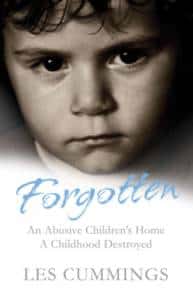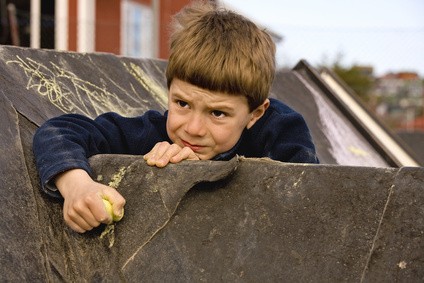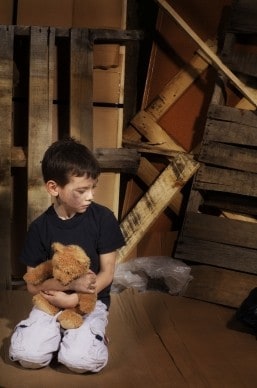[quote_center]What if you feel like you could vanish off the face of the Earth and no one would care?[/quote_center]
 I have read a lot of books. Yet, never one so skillfully written. I don’t know what caused me to pick this book at the store. The summary on its back cover was promised a drama. The book was described as a memoir and it seemed that the story could be characterized as being from the coming of age genre and thus of interest to me and the readers of this site.
I have read a lot of books. Yet, never one so skillfully written. I don’t know what caused me to pick this book at the store. The summary on its back cover was promised a drama. The book was described as a memoir and it seemed that the story could be characterized as being from the coming of age genre and thus of interest to me and the readers of this site.
At the very begining of this review, I should warn you that Forgotten is not an easy book to live (I know the word should have been “read” instead of “live”, but I did live through the story and therefore decided to stick with the word I unconsciously had written).
Les Cummings spent many years of his life in a children’s home near Portsmouth, UK and only left to find himself in even worse conditions due to the negligence of the people who were entrusted to care for him – starting with his mother, the city council, the police and every member of the society who chose to turn its head away. Forgotten is a non-fictional memoir and it traces Cummings whole life — from early childhood to elderly adulthood. His analysis of the life he has been forced to live is often heartbreaking.
He writes:
[quote_center]….I rarely thought consciously about my childhood but it was always there in very action I took, every argument I picked, every decision I made …..[/quote_center]
This is probably one of the reasons why watching coming of age films or reading coming of age books is a must for each responsible member of society. It allows us to have an alternative point of view of the world that surrounds us and the behavior of people with whom we have out daily interactions.
Yes, Forgotten was not an easy book to read, nor was it easy for its author to write. His words better illustrate that point:
[quote_center]….Finding the strength to put pen to paper has not been easy. In order to write each line I have had to relive each memory – in many cases painstakingly….[/quote_center]

His emotions and honesty, his writing makes the reader wonder if such things are really possible. Part of human nature does not want to accept cruelty and violence as characteristics of creatures that belong to the same race. I used the word “creatures” on purpose as I can’t force myself to consider them humans…as if that would bring me down to their level. The book of itself is so powerful, the story so provoking and realistic that one feels the need to stop reading for a while …as if to avoid the knowledge of what was happening inside the pages and the reality of what was being described in words and fit into a book. Yet, one keeps reading and feels proud for Les Cummings for the courage it must have taken to write the history of his life.
[pull_quote_right]I did not have any opinion on religion at that age. Like everything else, I went because I was told to go. I was not encouraged to have a view on anything.[/pull_quote_right]
Sadly, not many things have changed in our modern society, as people below a certain age are still considered inferior when it comes to issues that adults consider too complicated for youngsters to comprehend. A lack of experience is the most used reason given in this discourse. Yet, we often forget that kids are human beings with their own individuality and should not be denied the opportunity to express their views. They can often affect, and even modify, our own perception of the world, which often bears too many prejudices and limitations gained through each person’s unique living experience.
N ever before have I seen such powerful opening and closing paragraphs to the chapters of a book. The author masterfully selected attention grabbing words that make the reader anxious to find out more or to think about what has just been read.
ever before have I seen such powerful opening and closing paragraphs to the chapters of a book. The author masterfully selected attention grabbing words that make the reader anxious to find out more or to think about what has just been read.
My biggest fear as a child was being noticed…Blending with everyone else became a necessary survival tactic
Even before picking up the book, you can get pretty good idea of what is inside it from the name of the chapters in the contents list: “One of the forgotten”, “What will happen to my children?”, “I’m never going to leave you again”, “She is not coming back”, “Who do you think you are?”, “It’s only for one day”…etc.
Then, as one goes through the chapters, one associates more and more with Les as he grows in the children’s home – deprived from affection or a caring word. He becomes a victim of violence and prejudice. Years later, however, when he finally manages to access his official file, the wording in it terribly twists the truth:
….I finished reading the documents…..According to the records in front of us I was Satan’s representative on Earth. I had bitten every hand that ever fed me – and I was fed very well, by the way, according to these statistics – I had stolen from everyone who tried to help me, and I had concocted wicked lies to innocent parties in hot water…
In the chapters of the book, you will find much reference to historical events that have occurred. One of them was the practice of the British of shipping orphans and disadvantaged children to Australia, which I referenced in my review of The Leaving of Liverpool. Another was the war and its impact on the people and the society as a whole.
I highly recommend this book to everyone over the age of fourteen, but re-state that it’s not an easy read and readers are likely to do a lot of thinking in the process.